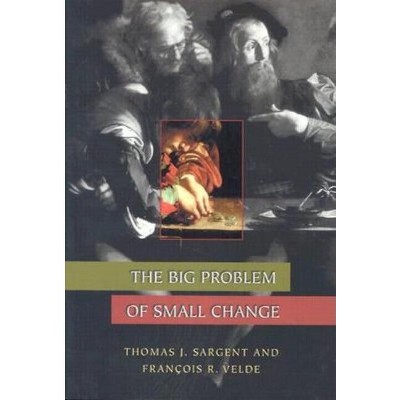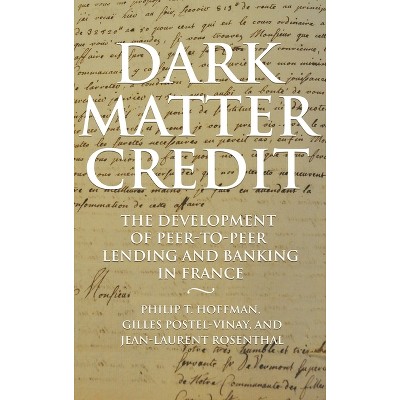Uneven Centuries - (Princeton Economic History of the Western World) by Ş & evket Pamuk (Hardcover)

$42.00 sale price when purchased online
$45.00 list price
Target Online store #3991
About this item
Highlights
- The first comprehensive history of the Turkish economy The population and economy of the area within the present-day borders of Turkey has consistently been among the largest in the developing world, yet there has been no authoritative economic history of Turkey until now.
- About the Author: Şevket Pamuk is professor of economics and economics history at Bogaziçi University in Istanbul.
- 368 Pages
- Business + Money Management, Economic History
- Series Name: Princeton Economic History of the Western World
Description
About the Book
The population and economy of the area within the present-day borders of Turkey has consistently been among the largest in the developing world, yet there has been no authoritative economic history of Turkey until now. In Uneven Centuries, Sevket Pamuk examines the economic growth and human development of Turkey over the past two hundred years. Taking a comparative global perspective, Pamuk investigates Turkey's economic history through four periods: the open economy during the nineteenth-century Ottoman era, the transition from empire to nation-state that spanned the two world wars and the Great Depression, the continued protectionism and import-substituting industrialization after World War II, and the neoliberal policies and the opening of the economy after 1980. Making use of indices of GDP per capita, trade, wages, health, and education, Pamuk argues that Turkey's long-term economic trends cannot be explained only by immediate causes such as economic policies, rates of investment, productivity growth, and structural change. Uneven Centuries offers a deeper analysis of the essential forces underlying Turkey's development--its institutions and their evolution--to make better sense of the country's unique history and to provide important insights into the patterns of growth in developing countries during the past two centuries.Book Synopsis
The first comprehensive history of the Turkish economy
The population and economy of the area within the present-day borders of Turkey has consistently been among the largest in the developing world, yet there has been no authoritative economic history of Turkey until now. In Uneven Centuries, Şevket Pamuk examines the economic growth and human development of Turkey over the past two hundred years. Taking a comparative global perspective, Pamuk investigates Turkey's economic history through four periods: the open economy during the nineteenth-century Ottoman era, the transition from empire to nation-state that spanned the two world wars and the Great Depression, the continued protectionism and import-substituting industrialization after World War II, and the neoliberal policies and the opening of the economy after 1980. Making use of indices of GDP per capita, trade, wages, health, and education, Pamuk argues that Turkey's long-term economic trends cannot be explained only by immediate causes such as economic policies, rates of investment, productivity growth, and structural change. Uneven Centuries offers a deeper analysis of the essential forces underlying Turkey's development--its institutions and their evolution--to make better sense of the country's unique history and to provide important insights into the patterns of growth in developing countries during the past two centuries.Review Quotes
"[A] powerful analysis of how Turkey got into its present position."---Paul Rivlin, Bustan: The Middle East Book Review
"Described as 'the first comprehensive history of the Turkish economy', Uneven Centuries has been widely acclaimed for its 'rich and original' broad approach"-- "Cornucopia"
"Sevket Pamuk's engaging book frames the evolution of the Turkish economy over two centuries, showing that historical developments under the Ottomans constitute an essential key to comprehending the path taken by modern Turkey."---Giampaolo Conte, Journal of European Economic History
"Winner of the British-Kuwait Friendship Society Book Prize"
About the Author
Şevket Pamuk is professor of economics and economics history at Bogaziçi University in Istanbul. His books include A Monetary History of the Ottoman Empire and The Ottoman Empire and European Capitalism, 1820-1913.Dimensions (Overall): 9.5 Inches (H) x 6.2 Inches (W) x 1.4 Inches (D)
Weight: 1.45 Pounds
Suggested Age: 22 Years and Up
Series Title: Princeton Economic History of the Western World
Sub-Genre: Economic History
Genre: Business + Money Management
Number of Pages: 368
Publisher: Princeton University Press
Format: Hardcover
Author: Ş & evket Pamuk
Language: English
Street Date: November 20, 2018
TCIN: 93376914
UPC: 9780691166377
Item Number (DPCI): 247-27-6731
Origin: Made in the USA or Imported
If the item details above aren’t accurate or complete, we want to know about it.
Shipping details
Estimated ship dimensions: 1.4 inches length x 6.2 inches width x 9.5 inches height
Estimated ship weight: 1.45 pounds
We regret that this item cannot be shipped to PO Boxes.
This item cannot be shipped to the following locations: American Samoa (see also separate entry under AS), Guam (see also separate entry under GU), Northern Mariana Islands, Puerto Rico (see also separate entry under PR), United States Minor Outlying Islands, Virgin Islands, U.S., APO/FPO
Return details
This item can be returned to any Target store or Target.com.
This item must be returned within 90 days of the date it was purchased in store, shipped, delivered by a Shipt shopper, or made ready for pickup.
See the return policy for complete information.











